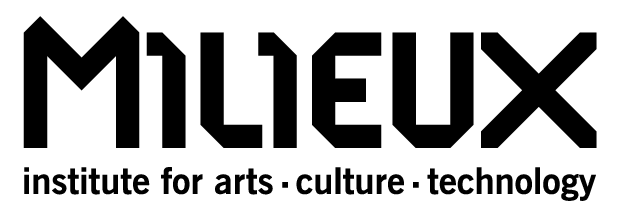
- This event has passed.
Julian Stadon Workshop: ‘TeleAgriCulture’
2022-10-29 | 10:00 - 17:00

Members across clusters are invited to this workshop with Julian Stadon
TeleAgriCulture: Developing Crowd/Cloud Approaches to Creative Cultivation and Empathetic Engagement in Post-Natural Ecologies
In this workshop, participants will engage in urban environmental sampling (water, soil, air etc.) and will be introduced to the TeleAgriCulture platform. Based on previous and novel projects, as well as case studies that aim to engage creatives, farmers, cooks, and the general public in food, urban, and post-industrial ecologies, the workshop will offer an overview of how the digital sensor systems operate and are modified, along with other peripheral sampling methods. Participants will be introduced to the system technics and its data flows, from sensor/sample to server, to creative outputs, along with being introduced to an ideation and rapid-prototyping method for using the platform. Participants will then break into transdisciplinary teams and, using available samples, develop a project concept that uses the platform, with the results to be presented at the end of the session.
To participate in this workshop please register here.
Presented by the Concordia University Research Chair in Critical Practices in Materials and Materiality with Hexagram Network, and happening at the Milieux Institute for Arts, Culture & Technology, on Saturday 22nd from 10:00am to 5:00pm in the Speculative Life Research Cluster room (Room EV-10.625) @ Concordia University, 1515 Ste-Catherine Street West, H3G 2W1.
Julian Stadon’s practice-based research intersects biocomputational processes, embodiment, and food ecologies toward performative art-science interventions. His PhD examines Post-Bio-Digital Identity and Augmentation Aesthetics through the Data Body Trader project and marart.org. Stadon currently teaches at Interface Cultures (Linz), Winchester and LUCA Schools of Art, directs TeleAgriCulture and The Island of the Day Before Projects and is on the steering committees for the IEEE International Symposium on Mixed and Augmented Reality (ISMAR), 3erH0F and Donautics.
